Environmental Science : Term 1 Unit 3 : Plants Around Us
Unit 3
Plants Around Us
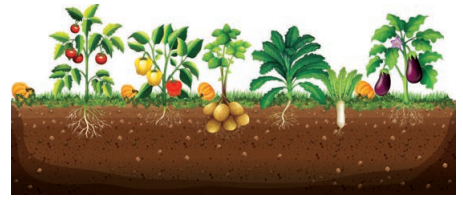
You will learn about
* The parts of a plant
* Different kinds of plants
* Benefits of plants
* Trees as habitats for animals
Parts of a Plant
A group of students went on a field visit to a garden. Meena looked at a sapling closely and asked her teacher, “One part of this plant is green while the other part is brown in colour. Why is it so, teacher?”
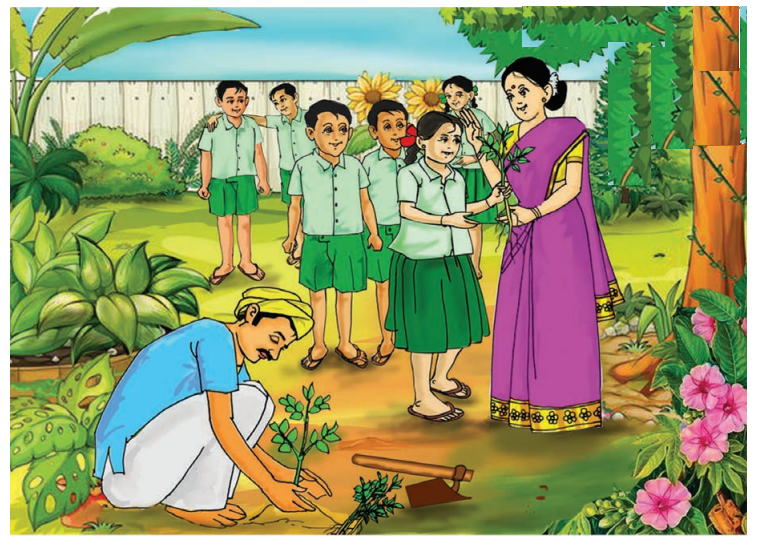
The teacher explained, “Our body has different parts such as hands, legs and head. In the same way, plants also have different parts. They are of different colours. Let us learn about them”.
Let Us Discuss: Look at a plant. What do you see? Can you guess what the different parts of the plant do?
Every plant has a root and a shoot system.
Root System
The part of the plant that grows under the ground is called the root system.
Shoot System
The part of the plant that grows above the ground is called the shoot system. It consists of stem, leaf, flower and fruit.
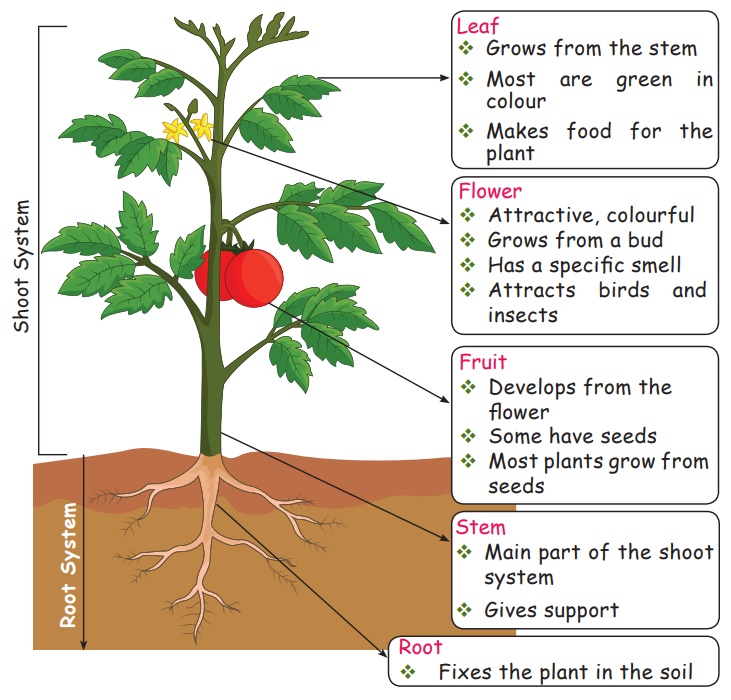
Leaf
* Grows from the stem
* Most are green in colour
* Makes food for the plant
Flower
* Attractive, colourful
* Grows from a bud
* Has a specific smell
* Attracts birds and insects
Fruit
* Develops from the flower
* Some have seeds
* Most plants grow from seeds
Stem
* Main part of the shoot system
* Gives support
Root
* Fixes the plant in the soil
Label the parts of a plant. (Flower, Leaf, Stem, Root, Fruit)
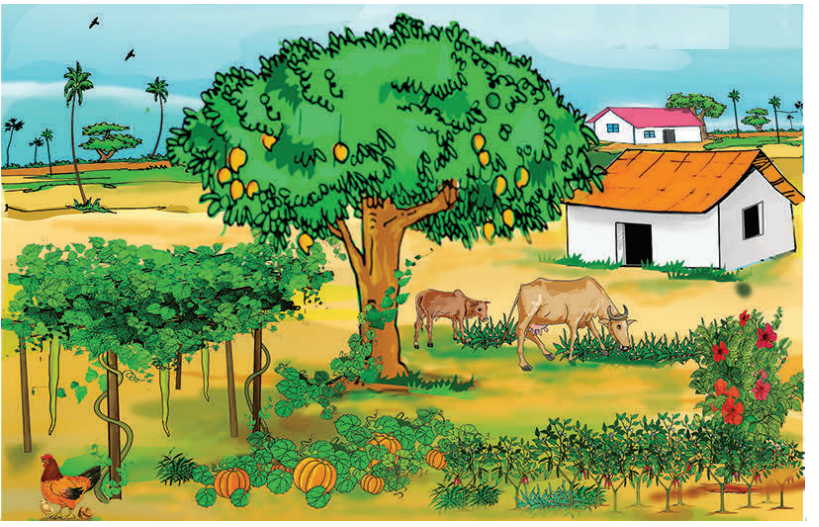
Different Kinds of Plants
Look at the picture and name some of the plants that you know. What else do you observe?

Answer: Mango tree, Pumpkin plant, Coconut tree, Hibiscus plant, Snake gourd plant
Plants are of different kinds. They can be grouped based on the size and nature of their stems.
Word List: small, thin, soft, stem, hard, weak, support
Herbs
Herbs are small plants with thin and soft stems. Most of them live for a few months only; e.g., Mint, Coriander, Grass.

Shrubs
Shrubs are smaller than trees. They have many stems that grow close to the ground. The stems are thin and hard. Shrubs live for several years; e.g., Shoe flower, Oleander, Jasmine .
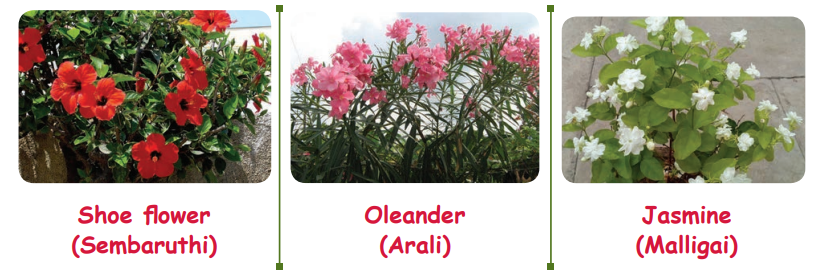
Note for the teacher: Visit a garden nearby with your students and ask them to observe different kinds of plants.
Climbers
Climbers have weak stems and they need support to climb and grow. Some of them live for a few months only; e.g., Broad beans, Snake gourd, Ridge gourd.

Creepers are plants that have weak stems. They grow along the ground and bear large and heavy fruits. Many of them live for a few months only; e.g., Pumpkin, Watermelon, Muskmelon.
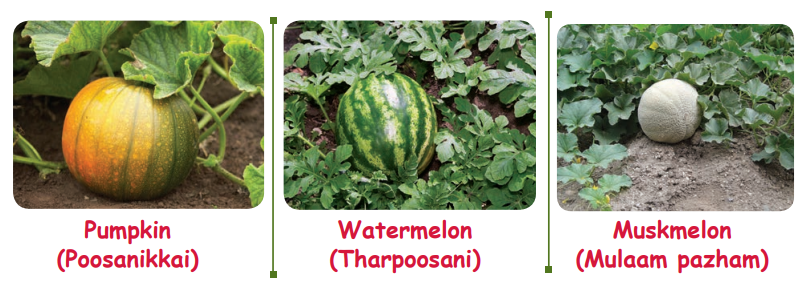
Big and tall plants are called trees. They have hard and thick woody stems called trunks. Trees have many branches. They live for many years; e.g., Banyan tree, Coconut tree, Mango tree.
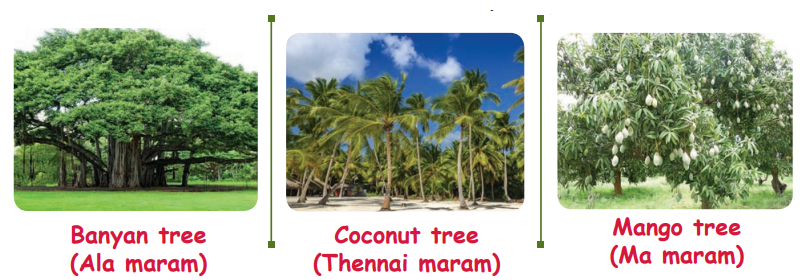
Observe the pictures and complete the table.
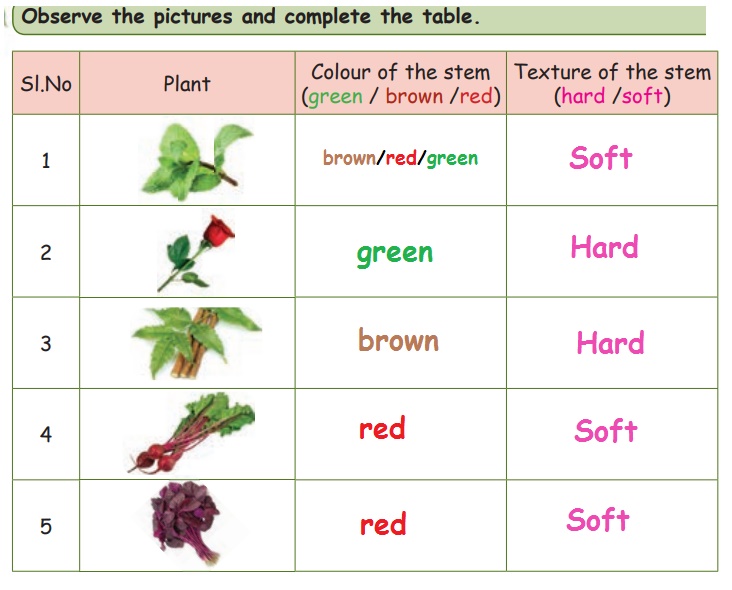
Benefits of Plants
Let Us Discuss
We get vegetables, fruits, cereals, pulses, spices, oil and medicines from trees, shrubs, herbs, climbers and creepers.
Vegetables

Fruits
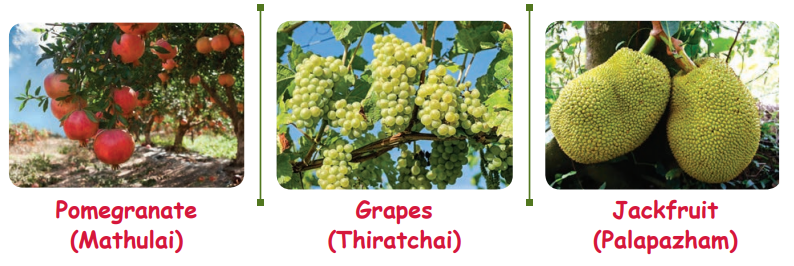
Cereals and Pulses

Spices
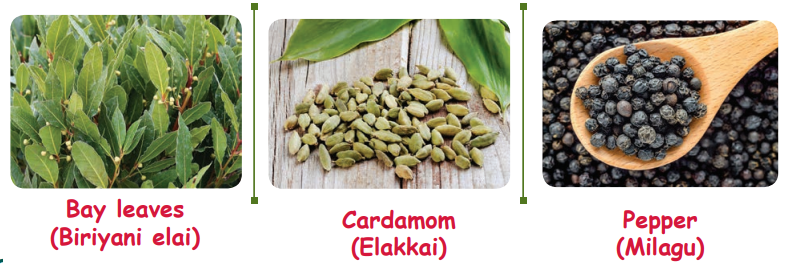
Oils
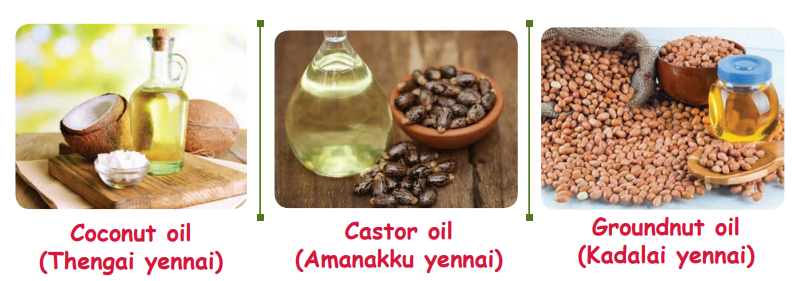
Medicines
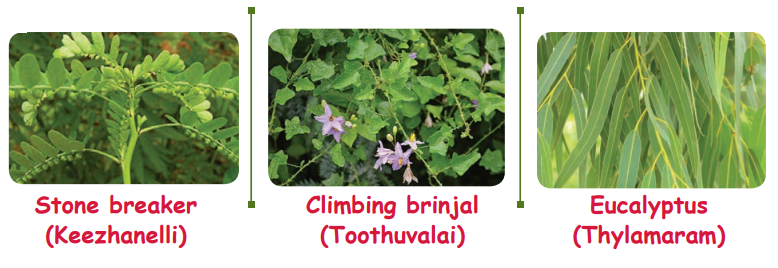
Do you know? Coconut Oil is used both for cooking and as hair oil.
Find the odd one in the group and put a tick (✓) mark.
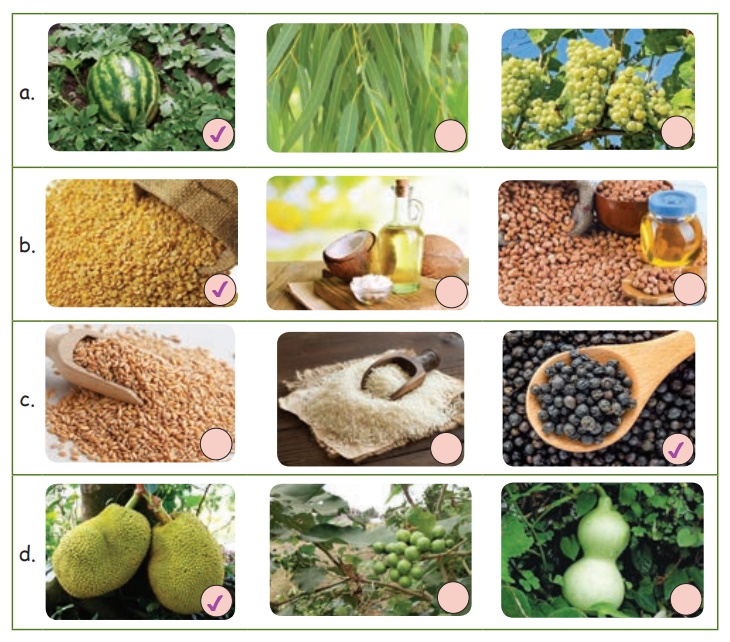
Other Benefits of Plants
We use different parts of the plants in many other ways. Let us talk about it.
As Fibre
The thread – like structure taken from a plant is called a fibre. Fibres are used for making ropes and cloth. We use the ropes and cloth in many ways.

As Plates for Eating
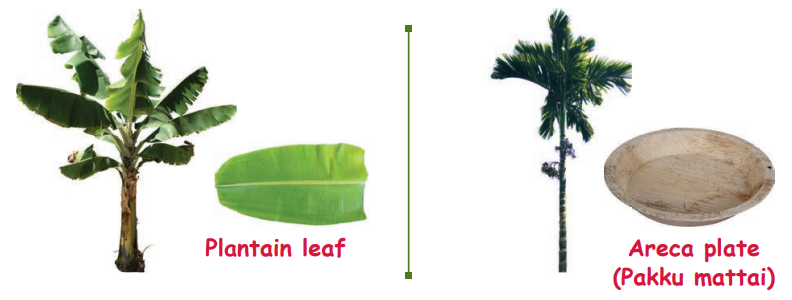
As Timber
The thick trunks of some trees are used for making doors, windows, tables, chairs and other things.
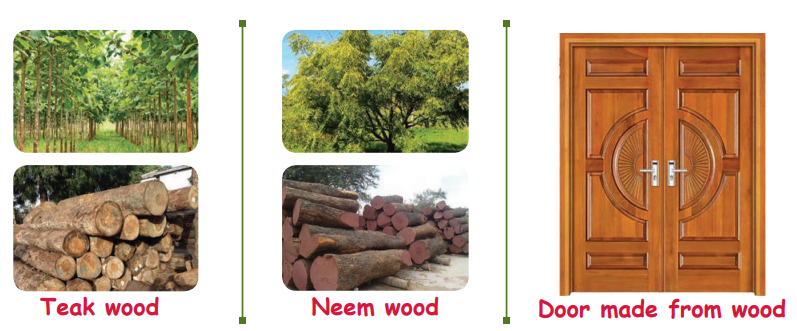
As Cosmetics
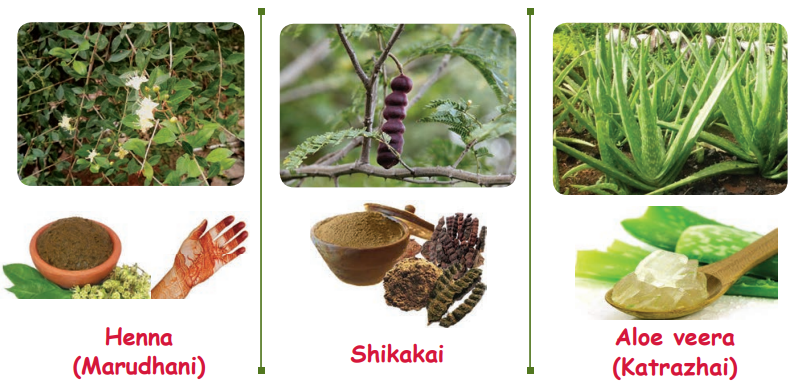
As Household Things
Palm leaves are used to make boxes, baskets and hand fans. Bamboo is used to make paper, chairs and winnows.
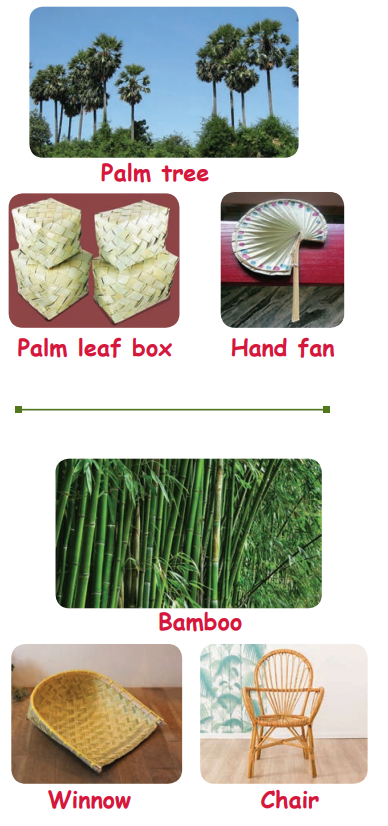
As Ornamental Plants

Match the plants with their products.
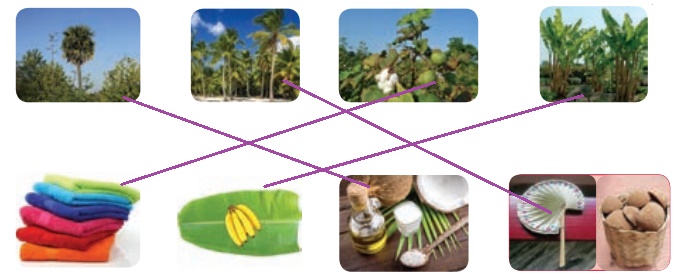
Colour the parts of the plants that you can eat.
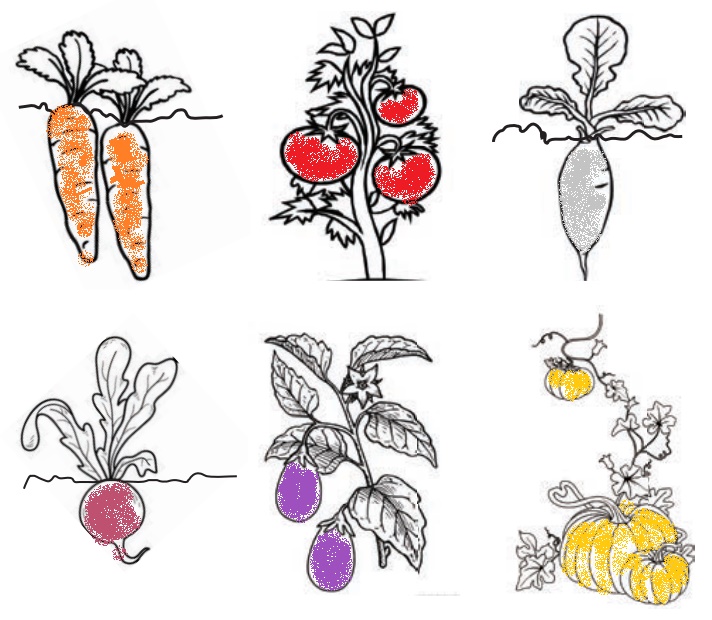
Tree as a Habitat
Let Us Discuss
Observe all the living beings in and around a tree and talk about them. The tree is a home (habitat) for many small animals such as birds, insects, squirrels and monkeys. It also gives us shade and clean air.
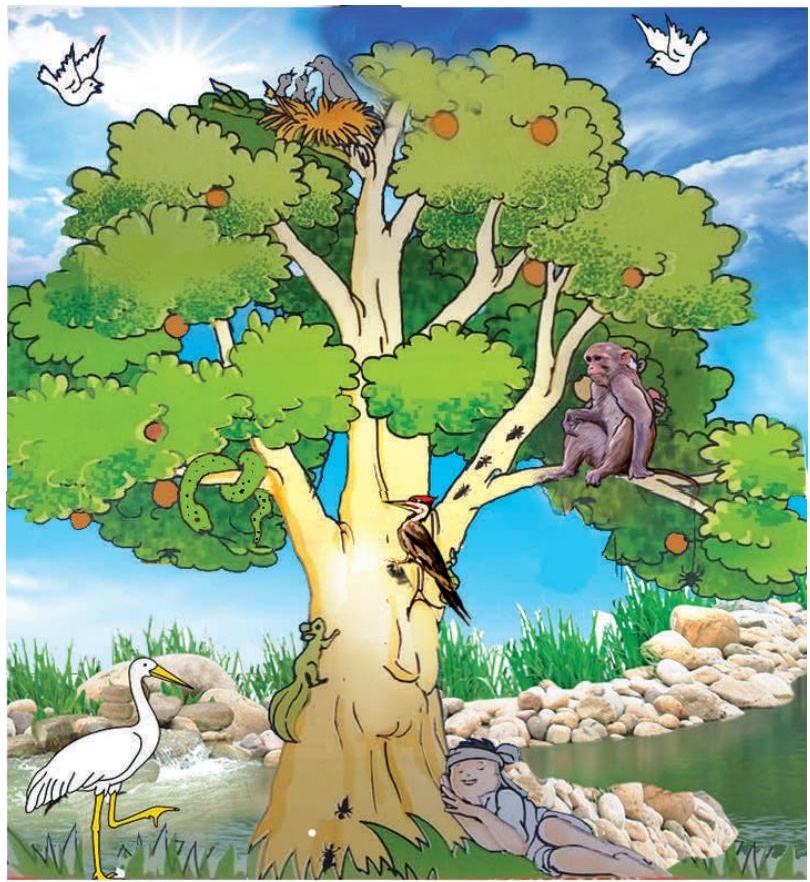
Tick (✓) the animals that you see on the given tree.
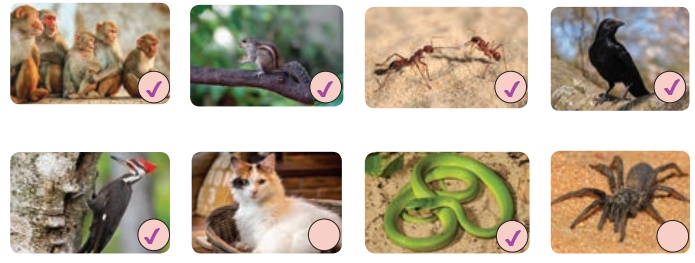
Evaluation
1. Match the pictures with the words.
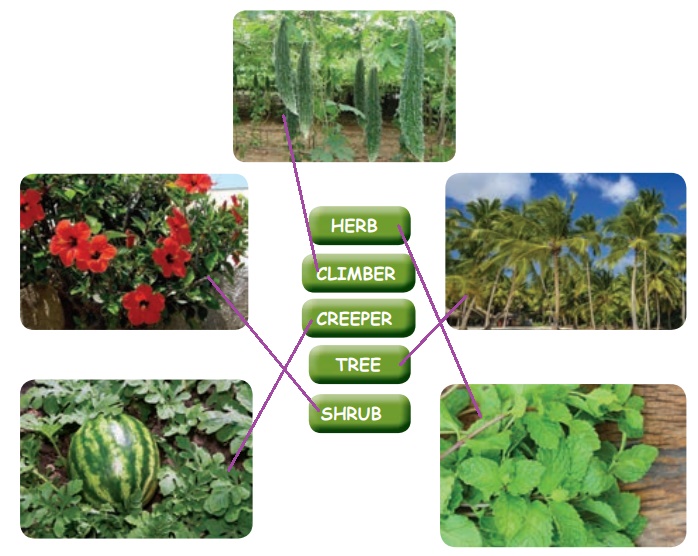
2. Match the following.
a. Pumpkin – Climber
b. Pepper – Fibre
c. Neem Tree – Creeper
d. Grapes – Spice
e. Cotton – Timber
Answer:
a. Pumpkin – Creeper
b. Pepper – Spice
c. Neem Tree – Timber
d. Grapes – Climber
e. Cotton – Fibre
3. Fill in the blanks.
a. The part of the plant that grows below the soil is called shoot system. (below / above)
b. The leaves are the green parts of a plant. (root / leaves)
c. Plates can be made from areca. (areca / neem)
d. Flowers grow from buds. (buds / fruits)
4. Choose the correct answer and circle it
a. A plant which gives fibre
(i) Banana
(ii) Tulsi
(iii) Rose
Ans : (i) Banana
b. Example of a creeper –
(i) Mint
(ii) Paddy
(iii) Watermelon
Ans : (iii) Watermelon
c. This is a spice.
(i) Bay leaf
(ii) Banana leaf
(iii) Greens
Ans : (i) Bay leaf
d. Winnow is got from –
(i) Palm tree
(ii) Coconut tree
(iii) Bamboo plant
Ans : (i) Palm tree
Self Evaluation
* I can name the parts of a plant
* I can identify different kinds of plants
* I know some uses of plants
* I care for the plants that support all life














